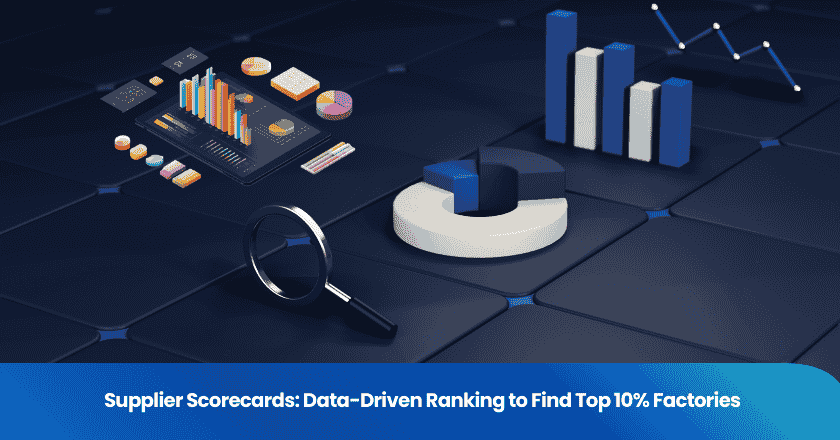
What are remote sourcing jobs and what should one pay attention to?
With the acceleration of globalization and the iterative development of internet technology, remote sourcing has become more frequent, and the related remote sourcing jobs have also become more important and popular.
Remote sourcing, as the name implies, refers to the procurement of goods or services through remote means such as the Internet.
Remote sourcing jobs require procurement personnel to possess professional procurement knowledge and skills, and they are expected to adapt to the characteristics of remote work and efficiently complete procurement tasks.
Next, we will explain the definition of remote sourcing, the responsibilities of remote sourcing jobs, and the items that need attention.
What are remote sourcing jobs
Remote sourcing jobs refer to procurement roles that are remotely executed through digital platforms and communication technologies.
Procurement experts can complete remote sourcing through the Internet or mobile devices, such as e-commerce platforms, procurement application tools, etc., without having to physically visit the location of the goods or production materials, enabling cross-regional and cross-time procurement activities.
Remote sourcing breaks through the geographical limitations of traditional procurement, allowing procurement personnel to complete sourcing tasks in any part of the world.
The emergence of remote sourcing jobs is a trend that has gradually become popular with the advancement of technology and the development of globalization.
The emergence of remote sourcing jobs allows companies to more flexibly utilize resources from around the world, effectively reducing costs and improving efficiency.
Common responsibilities of remote sourcing jobs
1. Supplier management and selection: Responsible for finding, evaluating, and managing suppliers to ensure that the product quality and services of the suppliers meet the needs of the company.
2. Procurement Requirement Analysis: Based on the actual needs of the company, analyze and determine the types, quantities, and specifications of the items to be purchased.
3. Price negotiation and contract signing: Conduct price negotiations with suppliers to reach the most favorable purchasing price and sign a purchasing contract.
4. Order tracking and logistics coordination: Track the execution status of remote sourcing orders, ensure timely delivery of goods, and coordinate with the logistics department.
5. Quality Control and After-sales Handling: Conduct quality inspections on purchased items, handle quality issues, and negotiate solutions with suppliers.
Things to consider when conducting remote sourcing
1. Information Security and Privacy
During the remote sourcing process, special attention should be paid to the security and confidentiality of information. Avoid leaking sensitive information such as supplier information, purchase prices, etc. in public network environments.
2. Communication efficiency and accuracy
Remote sourcing involves multi-party communication, and it is necessary to ensure that the communication channels are unobstructed and the information transmission is accurate and timely. Various communication methods such as email and online meetings can be used to improve communication efficiency.
3. Compliance with Laws and Regulations
In the process of remote sourcing, it is necessary to strictly abide by relevant laws and regulations, especially when it comes to cross-border procurement, one must understand and comply with the legal provisions of different countries and regions.
4. Supplier reputation survey
When selecting suppliers, it is necessary to conduct thorough credit investigations to ensure that the product quality and service level of the suppliers meet the requirements of the enterprise.
5. Procurement Risk Management
It is necessary to predict and assess the risks that may arise during the procurement process and formulate corresponding countermeasures to reduce procurement risks.
Other skills for supporting remote sourcing
1. Communication and communication skills
Working in remote sourcing jobs, good communication and communication skills are crucial. Sourcing experts need to be able to clearly express their needs and understand supplier feedback. They must also be proficient in using various communication tools, such as email, video conferencing, etc.
2. Understanding Internet and network security
Remote sourcing jobs rely on the Internet plus and various software tools. Familiarity with procurement software systems and understanding of network security knowledge are essential. Procurement experts need to ensure that their work environment is secure to prevent sensitive information leakage or data theft.
3. Cross-cultural communication and understanding
Remote sourcing jobs involve dealing with suppliers from all over the world, making cross-cultural communication and understanding more frequent and important. Sourcing experts need to respect partners with different cultural backgrounds, understand the business habits and etiquette between different cultures, and ensure smooth cooperation.
As a smart sourcing agent, TradeAider provides a new procurement collaboration method for remote sourcing. Leveraging TradeAider's over 2,200 partner factories in China and other countries, and more than 80,000 quality control and product development specialists worldwide, this extensive network enables TradeAider to deliver superior sourcing services. This ensures that remote sourcing professionals can receive high-quality products at lower costs with timely deliveries.
Remote sourcing jobs are positions full of challenges and opportunities.
To succeed in this role, procurement professionals need to continuously enhance their professional expertise and overall capabilities.
Only in this way can the smooth progress of remote sourcing activities be ensured, creating greater value for the enterprise.
Grow your business with TradeAider Service
Click the button below to directly enter the TradeAider Service System. The simple steps from booking and payment to receiving reports are easy to operate.



